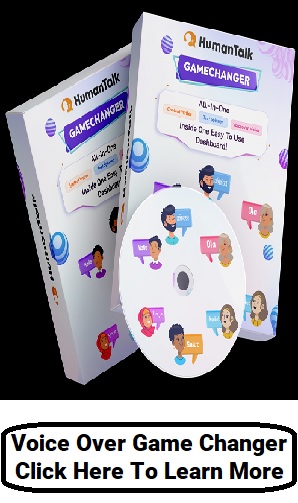In recent years, the world of voice over has witnessed a significant transformation, largely driven by advancements in artificial intelligence (AI) technology. AI is rapidly changing the landscape of the industry, offering new possibilities, efficiencies, and opportunities for both voice actors and content creators. In this article, we will explore the rise of AI in voice over and how this technology is reshaping the way we think about narration, dubbing, and audio content creation.
The Evolution of AI Voice Technology
Artificial intelligence has come a long way in replicating human speech. Early text-to-speech (TTS) systems sounded robotic and lacked the nuances of natural human voice. However, recent breakthroughs in machine learning, neural networks, and deep learning have given rise to highly realistic AI-generated voices that can mimic human speech patterns, intonation, and emotions.
One of the most notable developments is the creation of AI voice models that can be trained to sound like specific individuals or celebrities, enabling content creators to have "custom" voice overs without hiring a voice actor for every project. This technology is revolutionizing industries like advertising, audiobooks, and video games, where consistency and unique branding are paramount.
Benefits of AI in Voice Over
-
Cost-Efficiency: AI voice technology eliminates the need to hire voice actors for every project, significantly reducing production costs.
-
Speed and Scalability: AI-generated voices can produce narration or dubbing much faster than human voice actors, making it ideal for projects with tight deadlines or a high volume of content.
-
Language Versatility: AI voice models can speak multiple languages with equal proficiency, making it easier to create content for global audiences.
-
24/7 Availability: AI voices are available around the clock, allowing for continuous production without the limitations of human work hours.
-
Customization: AI voices can be fine-tuned to match the desired tone, style, and personality of a brand or project.
Applications of AI in Voice Over
-
Narration and Audio Books: AI-generated voices can narrate audiobooks, enhancing accessibility and reducing costs for publishers.
-
Advertising and Marketing: AI voices are used in commercials, radio ads, and digital marketing campaigns to deliver messages in a consistent and engaging manner.
-
Localization: AI helps in translating and dubbing content into various languages, enabling businesses to expand their reach to international markets.
-
Virtual Assistants and Chatbots: AI voices power virtual assistants like Siri and chatbots, providing a more human-like and conversational user experience.
-
Accessibility: AI voice technology enhances accessibility for individuals with disabilities, including those with visual impairments who rely on screen readers.
Challenges and Ethical Considerations
While AI in voice over offers numerous benefits, it also presents challenges and ethical considerations. These include concerns about job displacement for human voice actors, potential misuse for deepfake audio, and issues related to privacy and consent when replicating someone's voice.
The rise of AI in voice over is undeniably transforming the industry, offering a range of benefits such as cost-efficiency, scalability, and customization. However, it also raises important questions about the future of human voice actors and the responsible use of this technology. As AI continues to evolve, finding a balance between automation and maintaining the authenticity and ethical standards of voice over will be a crucial task for the industry. Regardless, there is no doubt that AI is changing the game and opening up new creative possibilities in the world of voice over.
- Behind the Mic: A Day in the Life of a Voice Over Artist
- Diversity and Inclusion in Voice Over: The Changing Landscape
- Interactive Voice Over: Engaging Audiences in New Ways
- Mastering Character Voice Overs for Animation and Video Game
- The Art of Voice Over Casting: Finding the Perfect Voice
- The Future of Voice Over: Predictions for the Next Decade
- The Globalization of Voice Over: Opportunities and Challenges
- The Power of Voice: How to Make Your Brand Memorable with Voice Overs
- The Psychology of Voice Overs: How Tone and Pitch Influence Perception
- The Rise of AI in Voice Over: How Technology Is Changing the Game
- Voice Over Accessibility: Making Content Inclusive for All
- Voice Over in Social Media Marketing: Capturing Attention in Seconds
- Voice Over Rates and Pricing: What You Need to Know
- Voice Over Trends to Watch in 2023
- Voice Over vs. Narration: Understanding the Differences

